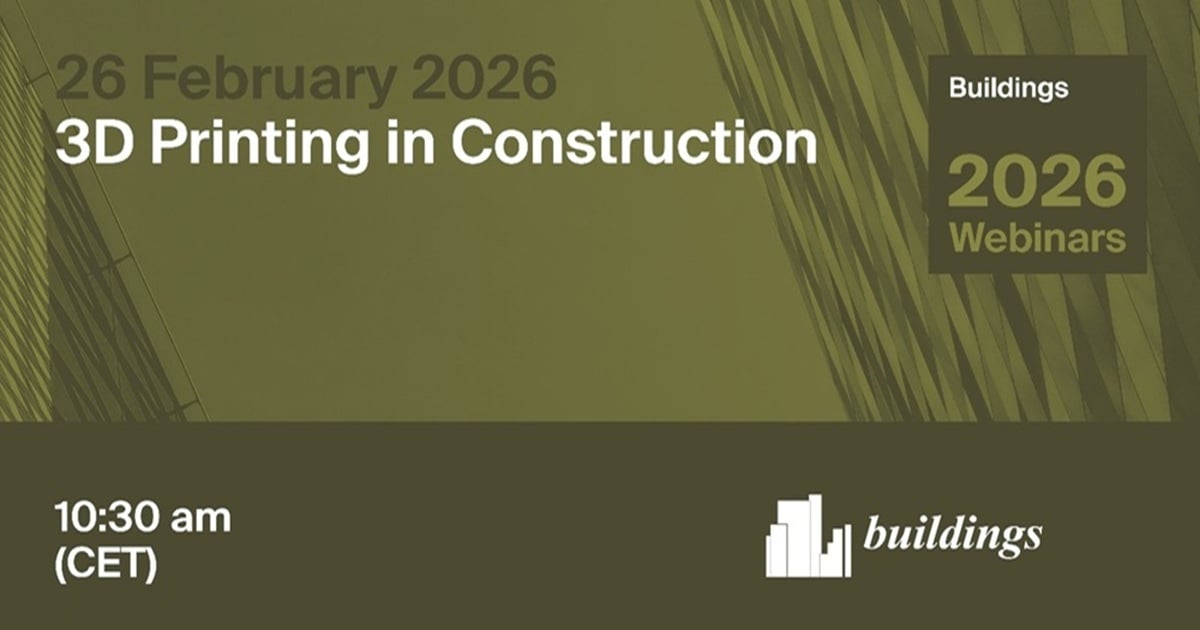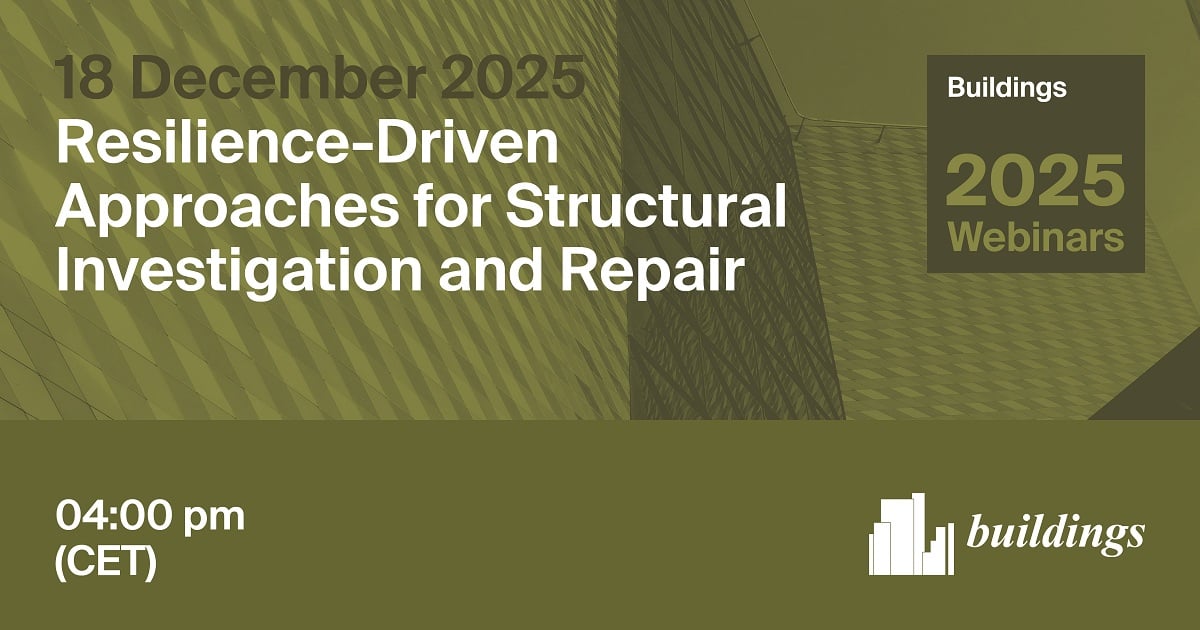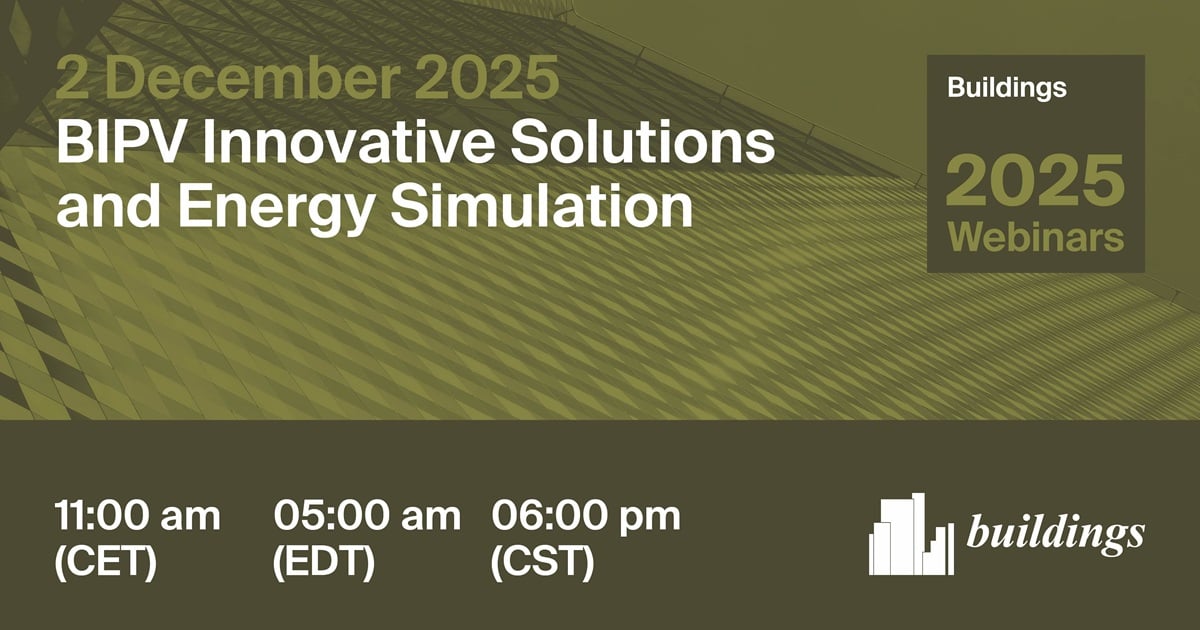- 3.1Impact Factor
- 4.4CiteScore
- 16 daysTime to First Decision
News & Conferences
Latest News & Announcements
Latest Conferences
Propose a Conference Collaboration
Promote and publicise your upcoming conference with MDPI.
All News & Conferences
26 - 26 February 2026
News & Announcements
Buildings Webinar | 3D Printing in Construction, 26 February 2026
13 January 2026
News & Announcements
MDPI’s Newly Launched Journals in December 2025
9 January 2026
News & Announcements
Buildings Webinar | Resilience-Driven Approaches for Structural Investigation and Repair, 18 December 2025
18 December 2025
News & Announcements
Meet Us at the CAA 114th Annual Conference, 18–21 February 2026, Chicago, USA
18 December 2025
MDPI Conference
Buildings Webinar | Resilience-Driven Approaches for Structural Investigation and Repair, 18 December 2025
18 - 18 December 2025
News & Announcements
Article Layout and Template Revised for Future Volumes
11 December 2025
News & Announcements
Meet Us at the 9th Asian Pacific Congress on Computational Mechanics/The 7th Australasian Conference on Computational Mechanics (APCOM-ACCM 2025), 7–10 December 2025, Brisbane, Australia
21 November 2025
News & Announcements
Interview with Prof. Dr. Eric Jing Du and His Research Team—Winners of the Buildings Best Paper Award
20 November 2025
2 - 2 December 2025
News & Announcements
Buildings Webinar | BIPV Innovative Solutions and Energy Simulation, 2 December 2025
13 November 2025
of 18







